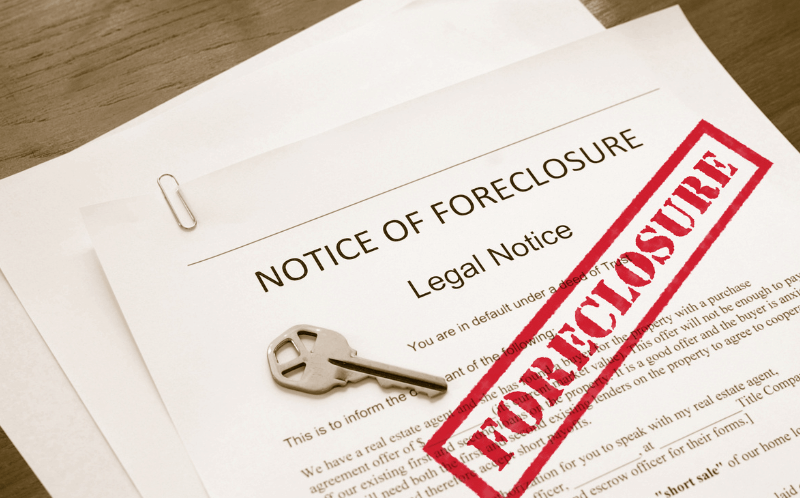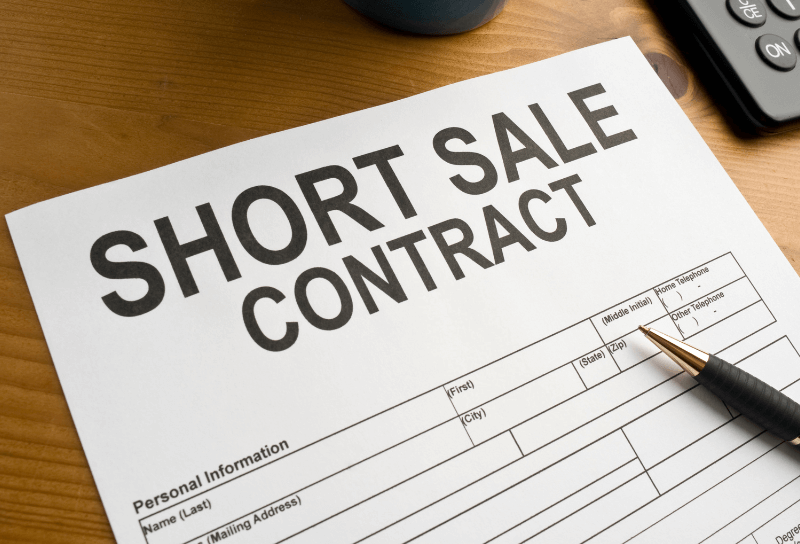
Facing the prospect of losing your home can be incredibly overwhelming. Whether dealing with financial hardship or struggling to keep up with your mortgage payments, you might be torn between a short sale and foreclosure.
Each situation has distinct processes and outcomes that could significantly impact your future. You may ask yourself: what’s the difference between a short sale and foreclosure?
How would each affect my credit score, and which is the better option? This article aims to answer all these questions and help you navigate this challenging time.
Your Guide to Short Sale vs. Foreclosure
Foreclosure and short sale occur when a homeowner can’t make mortgage payments. However, they differ in process, timeline, and potential impact on the homeowner.
A foreclosure happens when a lender seizes a property because the borrower has failed to keep up with mortgage payments. The foreclosure process usually begins after a homeowner defaults on payments for several months.
The lender initiates a public notice of default. If the homeowner can’t pay the remaining balance or sell the property through a short sale, the property goes to a foreclosure auction. If the property doesn’t sell at the auction, it becomes a bank-owned or real estate-owned (REO) property.
On the other hand, a short sale is when a homeowner sells their home for less than the amount remaining on their mortgage loan. For a short sale to occur, the lender must agree to accept a lower price for the home than the outstanding mortgage debt.
This option is usually considered during the pre-foreclosure period when the homeowner realizes they cannot keep up with future payments. A short sale requires the lender’s approval and often involves a lengthy process involving multiple lienholders.
In a short sale vs. foreclosure scenario, a short sale can often be preferable for the homeowner. It generally has a less negative impact on the credit report and provides more control over the selling process.
On the flip side, foreclosure can result in a severe hit to the homeowner’s credit score and can make it challenging to secure a home loan in the future. However, deciding between these two largely depends on your specific situation and personal factors, such as your financial situation, the market value of your home, and the potential for a deficiency judgment.
Moreover, if you’re a homeowner in Texas facing this challenging situation, remember that you’re not alone. At Four 19 Properties, we buy houses Texas owners need to sell and can help you navigate this difficult time. Whether you’re trying to stop foreclosure last minute or looking to sell a house fast in Granbury, our team is here to support you every step of the way.
What Is a Short Sale
In real estate, a short sale occurs when a homeowner sells their property for less than the remaining balance on their mortgage. This option can be viable for homeowners who cannot make their mortgage payments and face foreclosure threats. In these situations, a short sale can sometimes be a better alternative for both the lender and the borrower.
Here’s how it works: the homeowner (borrower) approaches the lender and proposes a short sale due to financial hardship. If the lender agrees, the homeowner can list the house for sale at a price lower than the remaining mortgage debt. However, it’s essential to remember that only some lenders will approve a short sale, as they agree to take a loan loss.
Once a potential buyer makes an offer, the homeowner has no final say on whether to accept it. Instead, the proposal goes to the lender or lenders (in case of a second mortgage), who must approve the sale price and terms. Because of this, short sales can be a lengthy process.
If you’re contemplating a short sale, seeking advice from real estate professionals, such as those at Four 19 Properties, is beneficial. If you’re in Texas, consider contacting reliable cash home buyers in Dallas to guide you through the process.

Differences Between Short Sale and Foreclosure
Though both foreclosure and short sale involve homeowners unable to meet their mortgage obligations, they are different in their processes, effects, and potential outcomes. Here’s a breakdown of the significant differences:
- Process and Control: In a short sale, the homeowner initiates the sale and retains some control over the process. On the other hand, in a foreclosure, the lender seizes control of the sale, and the homeowner has no say in the proceedings.
- Impact on Credit Score: Both a short sale and foreclosure negatively impact your credit score. However, a foreclosure tends to have a more significant impact, dropping your credit score by 200 to 400 points on average, while a short sale might lower it by 50 to 130 points.
- Deficiency Judgement: In some states, the lender can seek a deficiency judgment against the borrower after a foreclosure if the home sale doesn’t cover the remaining mortgage balance. However, with a short sale, lenders often waive their right to pursue a deficiency judgment.
- Time to Buy a New Home: After a foreclosure, you might have to wait up to 7 years to qualify for a new mortgage loan. After a short sale, you can purchase a new home in as little as two years, depending on the circumstances and your lender’s requirements.
- Home Sale Price: Foreclosed homes often sell for less on the housing market than short-sale properties. That’s because foreclosed homes can remain vacant for a long time and must be in better condition. In contrast, a short-sale property is usually well-maintained, as homeowners continue to live in the home during the sale process.
For instance, if you’re selling a house in Texas, getting help from local real estate experts could be a game-changer in navigating these processes.
Why Would a Lender Refuse a Short Sale?
You might wonder why a lender would ever refuse a short sale. After all, isn’t getting some money back better than none? But it’s crucial to remember that lenders are making money and will make decisions based on what they believe will lead to minor financial losses. Here are a few reasons why a lender might refuse a short sale:
- Insufficient Financial Hardship: Lenders typically require proof of financial hardship before they approve a short sale. If they believe the homeowner has the means to continue making mortgage payments or pay off the loan, they may deny the short sale.
- Higher Market Value: If a lender believes they can get more money from foreclosing on the home and selling it themselves, they may refuse the short sale. This is especially true in a strong housing market with increasing property values.
- Incomplete or Inaccurate Documentation: The short sale process requires a lot of paperwork, including financial statements, a hardship letter, and more. The lender may only accept the short sale if any required documents are present, correct, or filled out correctly.
- Junior Liens: If multiple liens exist on a property, each lienholder must agree to the short sale. If a secondary lienholder believes they will get more money by refusing the short sale and forcing a foreclosure, they can block the process.
Understanding why a lender might refuse a short sale can help you prepare for the process. If you’re in Granbury and are contemplating a short sale, reaching out to experts who can help you sell a house fast in Granbury could make the process smoother.
Do Short Sales and Foreclosures Affect Credit Ratings
The short answer is yes; short sales and foreclosures can hurt your credit ratings.
Foreclosure is particularly damaging to credit scores. Credit scoring models consider it a very adverse event and can reduce a credit score by 200 to 400 points on average. This severe drop can affect your ability to qualify for credit or new loans.
A short sale can hurt your credit score, but usually less than a foreclosure. A short sale could lower a credit score by 50 to 130 points depending on various factors. While not ideal, this is often considered a lesser evil than foreclosure.
Conclusion
Understanding the differences between a short sale and foreclosure is vital for first-time homeowners or buyers seeking affordable homes. In a short sale, with the mortgage lender’s approval, the homeowner, often guided by a realtor, sells the property for less than the mortgage amount.
Conversely, foreclosure properties are homes taken over by lenders due to missed payments, then sold, often through real estate agents. To avoid foreclosure, homeowners can choose a deed in lieu of foreclosure, transferring property ownership to the lender.
Buyers eyeing discounted homes should consult a real estate agent familiar with both processes. Some homeowners may consider refinancing as an alternative to secure better loan terms. Consulting professionals, be it mortgage lenders or agents, ensures informed decisions.
Whether you’re in Texas or New York, expert advice can help you navigate these processes. Consider reaching out to Four 19 Properties, your trusted partner, when navigating the complexities of the real estate market. After all, the goal is to make the best out of a challenging situation.
